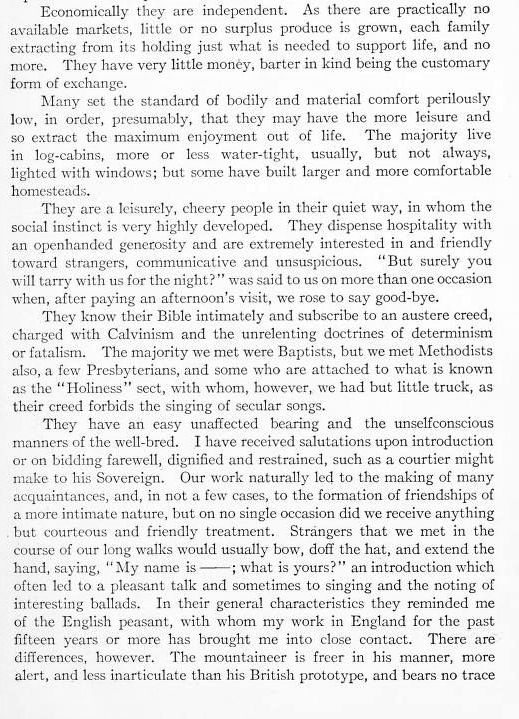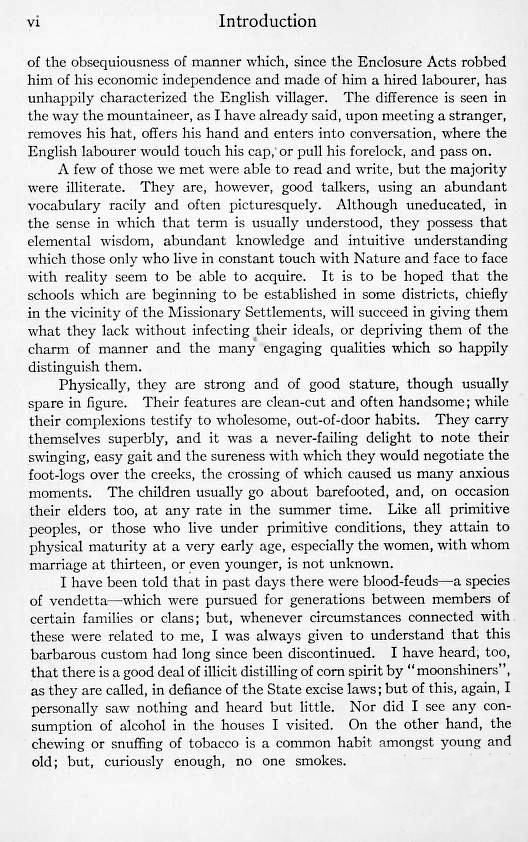Some of you may be familiar with old folk ballads from Britain about Thomas the Rhymer, also known as Thomas Rymer, True Thomas, or Thomas of Erceldoune. He was a Scottish semi-legendary figure who apparently did actually exist, though the stories told in the ballads are often fantastic in nature.
There are a number of cryptic prophecies credited to him, including the following verses about the future of his native Scotland:
“Tho’ wont to win, may be subdued,
And come in under yoke,
Strangers may reign, and you destroy
What likes him by sword’s stroke.
A foreign foe whom neither thy force
Nor manners do approve,
Woe is to thee, by guile and sleight
Will only win above.
This mighty nation was to force
Invincible and stout,
Will yield slowly to destiny,
Great pity is, but doubt.
[…]
Then mark and see what is the cause
Of this so wondrous fall:
Contempt of faith, falsehood, deceit,
The wrath of God withal.
[…]
Therefore this cause the prophets
Of long time did presage;
And now has happened every point
Into your present age.
Since fate is so, now Scotland learn
In patience to abide,
Slanders, great fears, and sudden plagues
And great dolours beside.
[…]
And yet beware thou not distrust
Altho’ o’erwhelmed with grief,
Thy stroke is not perpetual,
For thou shalt find relief.
Old prophecies foretell to thee
A warlike heir be born,
Who shall recover anew your right,
Advance this kingdom’s horn.”
The last verse, I’ve bolded, because it relates to the theme of this post. The last verse states that a ‘warlike heir’ will be born whose role it will be to defend Scotland in her ‘time of great need.’ According to some of the lore about Thomas, he will return, after a mysterious departure centuries ago, to act as the defender of Scotland in a dire crisis. The verses above refer to a ‘foreign foe’ who conquers and oppresses Scotland. For many people that verse has been fulfilled, with the English (as usual) filling the role of the conqueror/oppressor. But as with the Fox’s Prophecy, which I’ve posted in the past, some future event seems to be implied in both prophecies.
It’s interesting to me that I’ve read a similar story about Sir Francis Drake returning to defend his countrymen.
The most famous legendary ‘sleeping hero’ coming back to defend his folk is King Arthur, the subject of my recent post, who is said to be sleeping, awaiting a time of great need, when he will return to act as champion of his folk. Now opinions differ as to just who are King Arthur’s folk in modern-day Britain; I believe the Welsh legends say Arthur will come back to defend the Welsh against the Angles, Saxons, Normans, et al. However the popular belief today seems to be of a more all-inclusive King Arthur who will defend the people of Britain.
It is interesting to me that these stories of a hero or warrior from past ages ‘awakening’ to champion his besieged people are so widespread in Europe, as you will read on this page. These ‘sleeping heroes’ include Frederick Barbarossa of Germany and Holger Danske, or Holger the Dane, who is apparently hailed as a symbol by some in the ‘counterjihad’ movement.
It would seem that this would be the ideal time for these ‘sleeping heroes’ of Europe to awake, as their countries are in dire need right now; how much worse does it have to be?
The fact that these legends are so widespread in Europe makes me wonder if the Europeans of olden time, being more in tune with the mystical and supernatural, had intuitions or intimations that Europe would one day be in very dire straits. It seems that time is here.
As for America: are we bereft of a ‘sleeping hero’ who will come back to fight for us? America has the ‘Grey Champion’ of Nathaniel Hawthorne’s story. Was the story of the Grey Champion based on an existing legend, or did Hawthorne base the character on the European “sleeping heroes’?
Sadly for Americans, I don’t see any champion, ‘Grey’ or otherwise, on our horizon. It may be that one will emerge when our need is greatest. But we seem to be so disunited that I wonder just who could succeed in uniting us.
If this is all fantasy, then humor me in it; we all need something to keep our spirits up and to offer us some hope in these difficult times.
Christians, however, have the very real promise of a more-than-human champion who will ultimately prevail for us.




